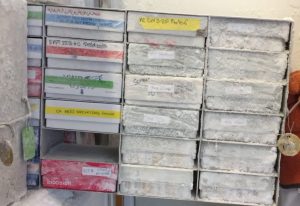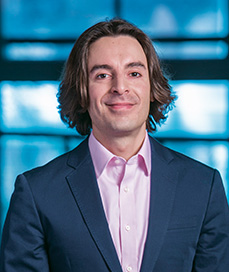
As the technology behind two of the COVID-19 vaccines, Messenger RNA (mRNA) is having a moment. A single-stranded counterpart to DNA, mRNA translates its genetic code into proteins; by injecting mRNA engineered to produce proteins found on the exterior of the virus, the vaccine can train a person’s immune system to recognize the real thing without making them sick.
However, because mRNA is a relatively unstable molecule, distributing these vaccines involves extra logistical challenges. Doses must be transported and stored at ultra-cold temperatures to make sure the mRNA inside doesn’t degrade and lose the genetic information it carries.

As mRNA vaccines and other therapies take off, researchers are looking for other ways to forestall this degradation. One of them is Michael J. Mitchell, Skirkanich Assistant Professor of Innovation in the Department of Bioengineering, who is studying the use of lipid nanoparticles to encapsulate and protect mRNA on its way into the cell. That sort of packaging would be particularly beneficial in proposed mRNA therapies for certain genetic disorders, which aim to deliver the correct protein-making instructions to specific organs, or even a fetus in utero.
But for stabilizing mRNA for vaccine distribution, many other strategies are being explored. In “Keeping covid vaccines cold isn’t easy. These ideas could help,” Wudan Yan of MIT Technology Review reached out to Mitchell for insight on LIONs, or lipid inorganic nanoparticles. These nanoparticles work the opposite way of Mitchell’s organic ones, with the mRNA stabilized by binding to their exteriors.
Continue reading at MIT Technology Review.
Originally posted in Penn Engineering Today.
